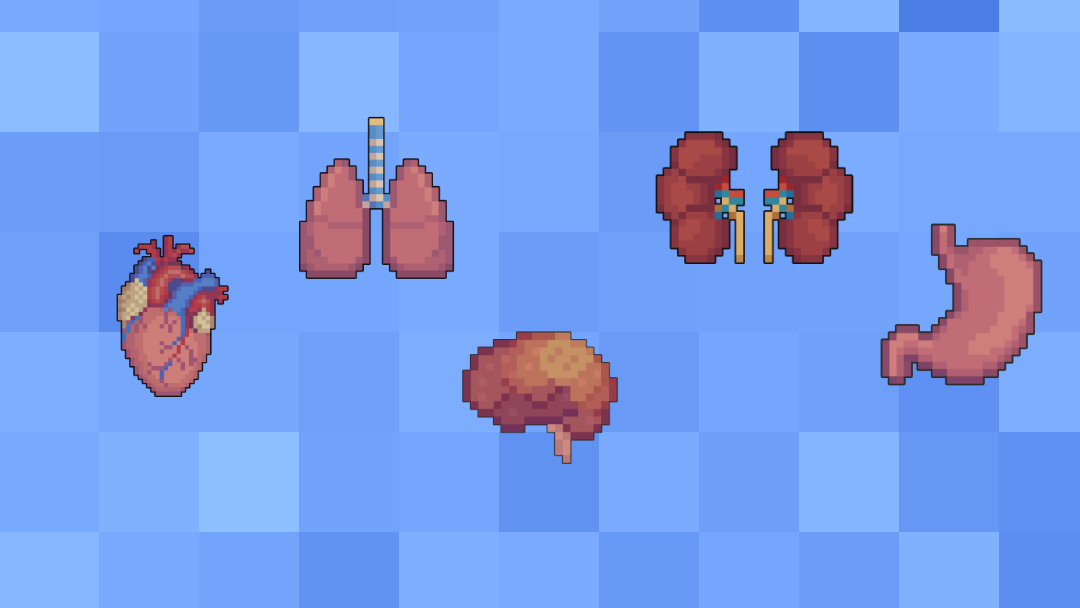- 📖 Geeky Medics OSCE Book
- ⚡ Geeky Medics Bundles
- ✨ 1300+ OSCE Stations
- ✅ OSCE Checklist PDF Booklet
- 🧠 UKMLA AKT Question Bank
- 💊 PSA Question Bank
- 💉 Clinical Skills App
- 🗂️ Flashcard Collections | OSCE, Medicine, Surgery, Anatomy
- 💬 SCA Cases for MRCGP
To be the first to know about our latest videos subscribe to our YouTube channel 🙌
A systemic enquiry (also known as a systems review) involves performing a brief screen for symptoms in other body systems which may or may not be relevant to the primary presenting complaint. A systemic enquiry may also identify symptoms that the patient has forgotten to mention in the presenting complaint.
Deciding on which symptoms to ask about depends on the presenting complaint and your level of experience.
Some examples of symptoms you could screen for in each system are shown below.
Systemic symptoms
Systemic symptoms to screen for include:
- Fevers
- Night sweats
- Weight change
- Fatigue
Cardiovascular symptoms
Cardiovascular symptoms to screen for include:
- Chest pain
- Palpitations
- Dyspnoea
- Pre-syncope
- Syncope
- Orthopnoea
- Peripheral oedema
Respiratory symptoms
Respiratory symptoms to screen for include:
- Dyspnoea
- Cough
- Sputum
- Wheeze
- Haemoptysis
- Pleuritic chest pain
Gastrointestinal symptoms
Gastrointestinal symptoms to screen for include:
- Appetite change
- Nausea
- Vomiting
- Dyspepsia
- Dysphagia
- Weight loss
- Abdominal pain
- Abdominal distension
- Jaundice
- Changes in bowel habit: constipation, diarrhoea, steatorrhoea, melaena, hematochezia
Genitourinary symptoms
Genitourinary symptoms to screen for include:
- Changes in urine output or colour: oliguria, polyuria, anuria, dark urine, haematuria
- Infective symptoms: urinary frequency, dysuria, flank pain, offensive discharge, pelvic pain
- Bladder control symptoms: urinary urgency, urinary incontinence
- Obstructive symptoms: terminal dribbling, nocturia
- Uraemic symptoms: fatigue, nausea, anorexia, pruritis
Neurological symptoms
Neurological symptoms to screen for include:
- Visual symptoms: blurred vision, changes in colour vision, sudden loss of vision, floaters
- Headache: unilateral headache, bilateral headache, thunderclap headache
- Motor or sensory disturbance: muscle weakness, numbness, paraesthesia
- Loss of consciousness including seizures
- Confusion
Ear, nose and throat symptoms
Ear, nose and throat symptoms to screen for include:
- Hearing loss/tinnitus
- Otalgia
- Facial pain
- Persistent nasal discharge
- Epistaxis
- Dysphonia
- Dysphagia
- Odynophagia
Musculoskeletal symptoms
Musculoskeletal symptoms to screen for include:
- Bone and joint pain
- Muscular pain
- Trauma
Dermatological symptoms
Dermatological symptoms to screen for include:
- Rashes
- Skin lesions
- Skin colour changes
- Ulcers




